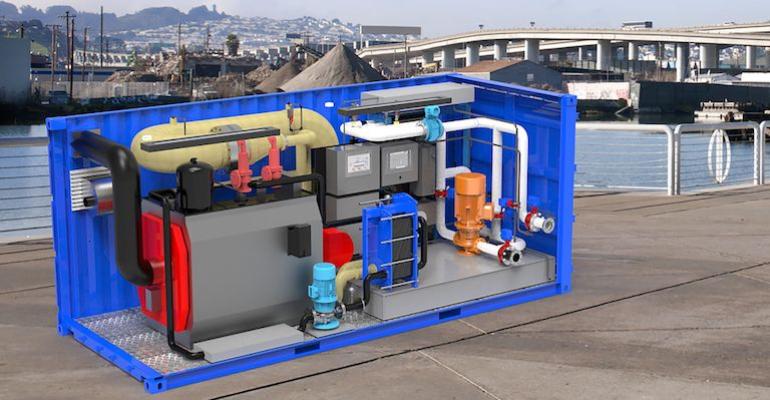As a result, a number of ports in Europe and the US have taken matters into their own hands hiring a company with possibly the simplest technology and lowest cost levels, but with a growing reputation for delivering results.
The BWMC was adopted by IMO in 2004 but took well over a decade to be fully ratified. In 2019 the BWMC was finally fully applied with a five-year implementation period for owners to fit treatment systems. That period comes to an end in September and the latest figures show that some 36% of ships simply do not meet convention requirements.
Around 10-years ago there were estimated to be more than 100 companies offering ballast water treatment systems, that field has narrowed considerably in recent years but concerns over the ability of some systems to meet regulations are growing.
Some ports have become so concerned about the failure of so many ships that they are making their own arrangements to deal with untreated, or poorly treated, ballast water from ships.
Hamburg is one port that has taken action hiring the Danish family run company, Bawat, to operate a mobile BWTS, which it calls Ballast as a Service (BaaS) based in a container, to treat water on ships that do not meet the standard.
Founded in 2011 by the now retired Jan Hummer, the company, now run by Jan’s son Marcus Peter had the system approved by the IMO in 2019 and by the US authorities a year later.
Bawat’s system is remarkably simple compared to many other that use UV and chemical systems requiring two-stage filtering and regular maintenance. In contrast Bawat uses waste heat from any source on a vessel to “pasteurise” the water.
Now listed on the Nasdaq, Bawat uses a pipe with heat exchangers to treat ballast water, with the capacity scalable by simply adding heat exchangers.
Marcus Peter lamented the failure of the BWTS industry, labelling the performance of many systems as “piss poor” and referring to an Australian study which was presented to the IMO’s Marine Environment Protection Committee (MEPC) 81, in March this year, which recorded a 36% non-compliance rate for vessels calling at Aussie ports.
Additionally, he quoted Germany’s premier port: “Hamburg’s Port Environmental department said, ‘We have two-three vessels a week calling the port with a non-functioning BWTS”.
Bawat will station a mobile system at Hamburg permanently, with a diesel operated boiler treating some 300lts of water per hour and using less than a litre of diesel for 1,000lts of water.
So effective is the Bawat system that the ports of Antwerp, Rotterdam and Bremen are following Hamburg’s lead in Europe while ports in California, the Great Lakes and Mexico are also utilising the system.
Copyright © 2024. All rights reserved. Seatrade, a trading name of Informa Markets (UK) Limited.
Add Seatrade Maritime News to your Google News feed.  |

